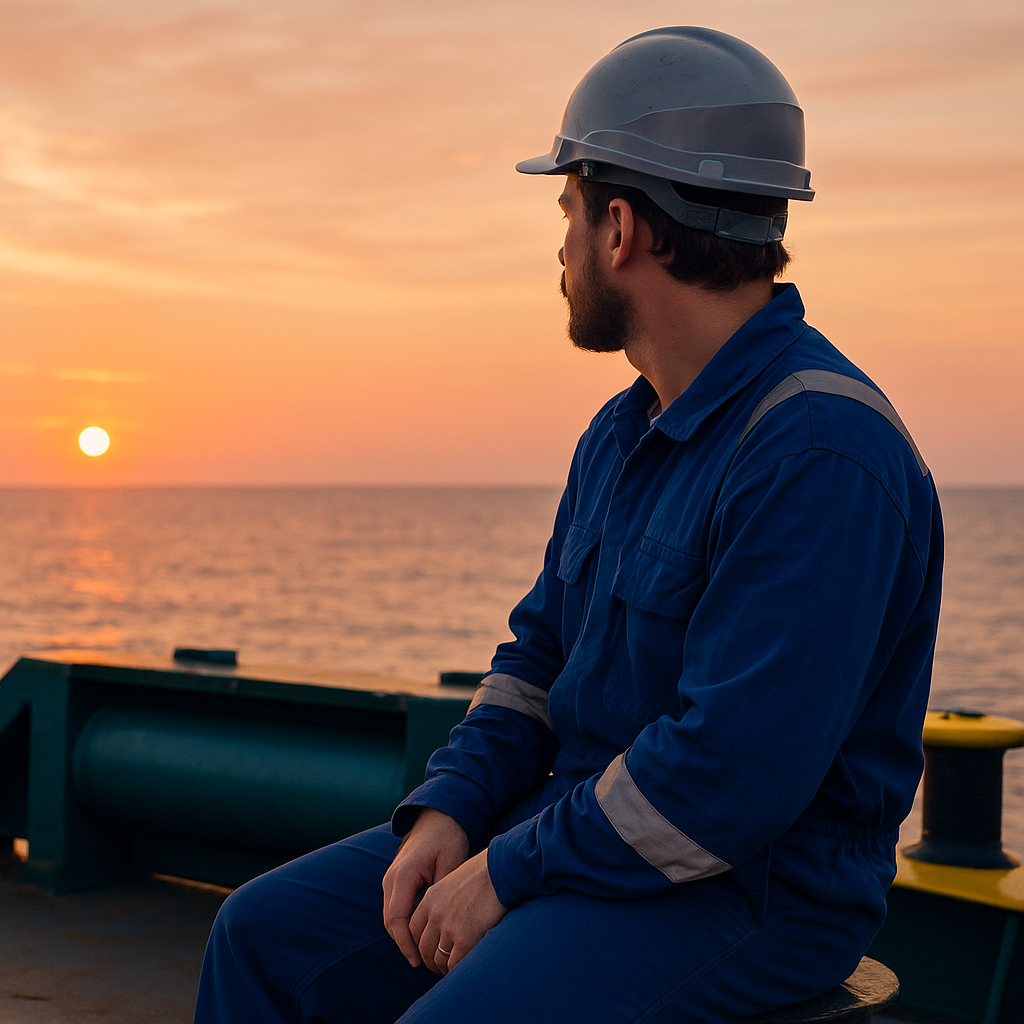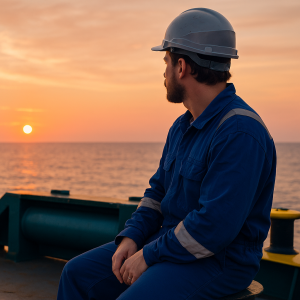05/22/2025
Discover how the IMO is strengthening seafarers’ rights and tackling substandard shipping practices. Explore the latest legal reforms, global statistics, and future maritime safety initiatives.”
Why IMO’s Legal Reforms Matter in Today’s Maritime Industry
The seafaring profession is essential yet perilous, often demanding months at sea under challenging conditions. For centuries, seafarers have operated with limited legal protections when detained abroad, especially in connection with alleged criminal activity. Simultaneously, the rise in substandard shipping—vessels operating outside regulatory norms—threatens not only crew safety but the environmental and economic stability of global trade.
In March 2025, the International Maritime Organization (IMO) took bold steps to address both issues. During the 112th session of its Legal Committee in London, chaired by Mr. Diego Ramirez (Marshall Islands), IMO adopted new international guidelines that directly enhance the fair treatment of seafarers and launch groundwork for combating substandard shipping.
These reforms come at a critical time, when seafarer abandonment cases are surging and unlawful maritime practices are proliferating.
Strengthening Seafarers’ Rights: What the New IMO Guidelines Include
The newly adopted “Guidelines on Fair Treatment of Seafarers Detained on Alleged Criminal Activity” aim to address longstanding concerns voiced by maritime labor unions, shipowner associations, and seafarers themselves. Developed jointly with the International Labour Organization (ILO) through a tripartite framework, the guidelines set out protections for detained crew members to ensure they are:
-
Not subject to arbitrary arrest or coercion
-
Granted timely legal representation
-
Provided continued access to wages, medical care, and repatriation
-
Informed in a language they understand
-
Shielded from intimidation or ill-treatment during investigation
The Human Side of Maritime Justice
IMO Secretary-General Arsenio Dominguez emphasized:
“Unfortunately, incidents of unjust treatment of seafarers are on the rise, posing a significant challenge to the sustainability of shipping.”
He noted that fear of prosecution and poor legal support can deter young professionals from entering the maritime workforce, exacerbating the ongoing seafarer shortage. These new guidelines aim to reverse that trend.
According to data from the International Transport Workers’ Federation (ITF), dozens of seafarers are detained each year—many for accidental or unproven offenses—facing months or even years without trial.
A Surge in Seafarer Abandonment Cases: Alarming Trends
The IMO/ILO Joint Abandonment Database recorded 310 cases in 2024, more than double the 142 cases in 2023. By February 2025, another 63 cases had already been logged.
Seafarer abandonment occurs when shipowners:
-
Fail to pay wages
-
Do not provide food, water, or medical care
-
Neglect to arrange repatriation
Real-World Example
In 2023, the crew of the bulk carrier MV Ula was stranded for over 17 months in Kuwait without wages or supplies. The incident, covered by Lloyd’s List Intelligence, exposed serious gaps in maritime labor enforcement, eventually prompting broader scrutiny.
To tackle this crisis, IMO urged Member States to:
-
Update national contact points for dealing with abandonment
-
Enforce the MLC, 2006 financial security provisions
-
Improve the reliability of reports filed in the abandonment database
The International Chamber of Shipping (ICS) is now leading a task force to review and upgrade the joint database, improving transparency and responsiveness.
Addressing Substandard Shipping: Protecting Safety and Competition
Substandard ships bypass international regulations, often lacking proper maintenance, certifications, or qualified crew. These ships:
-
Pose risks of accidents and environmental disasters
-
Threaten fair competition by lowering operational costs illegally
-
Undermine the credibility of flag States and classification societies
During the March 2025 session, the Legal Committee approved a regulatory scoping exercise to assess gaps in existing IMO conventions. A correspondence group will begin drafting proposals after July 2025.
Key conventions under review include:
-
SOLAS (Safety of Life at Sea)
-
MARPOL (International Convention for the Prevention of Pollution from Ships)
-
ISM Code (International Safety Management Code)
Future Legal Workstreams: Beyond Seafarers’ Rights
The Committee also launched three complementary legal initiatives:
-
Registration Guidelines: Best practices for ship registration that promote safety and environmental compliance.
-
Liability and Compensation for Alternative Fuels: Assessing how current IMO liability regimes apply to fuels like hydrogen, ammonia, and methanol.
-
Maritime Security Threats: Developing legal responses to cyber threats, piracy, and unlawful transshipments.
These initiatives will shape maritime law in the decade to come, supporting the transition to greener, safer, and more equitable operations.
FAQ: Seafarers’ Rights and Substandard Shipping
Q1: What rights do seafarers have if detained abroad?
A: Seafarers have the right to legal counsel, interpretation, communication with their embassy, and protection from arbitrary detention, as outlined in the IMO’s 2025 guidelines.
Q2: What counts as “abandonment” of a seafarer?
A: Abandonment includes failure to pay wages, provide basic necessities, or arrange repatriation. It is recognized under the MLC, 2006.
Q3: How can Member States report abandonment cases?
A: States should use the joint IMO/ILO Abandonment Database and assign national contact points to ensure timely, accurate reporting.
Q4: What is substandard shipping?
A: It refers to vessels that do not meet IMO safety, environmental, or labor standards. These ships often lack valid certificates or operate under poorly regulated flags.
Q5: How does the IMO ensure enforcement of these rules?
A: Through collaboration with port State control regimes like Paris MoU, peer review mechanisms, and coordination with the ILO, ICS, and P&I Clubs.
Q6: Why is the IMO focusing on alternative fuels?
A: As shipping decarbonizes, the liability and safety implications of using new fuels must be clearly defined in international law.
Conclusion: Toward a More Just and Safe Maritime Industry
The IMO’s recent Legal Committee session represents a turning point in maritime governance. By safeguarding the rights of seafarers and tackling substandard shipping, the organization is reinforcing its core mission: ensuring safety at sea and fair treatment for all maritime stakeholders.
Seafarers are the backbone of global trade, and legal reforms like these are essential for maintaining the industry’s integrity, sustainability, and appeal to future generations.
Stakeholders—from shipowners and port authorities to national governments and classification societies—must now work together to implement these guidelines and report abuses transparently.
References
- IMO: https://www.imo.org/en/MediaCentre/PressBriefings/pages/IMO-takes-action-on-seafarers-rights-substandard-shipping.aspx
-
International Maritime Organization. (2025). Legal Committee, 112th session (LEG 112), 24 – 28 March 2025. IMO.org
-
International Labour Organization. (2024). Seafarers Abandonment Database. ILO.org
-
International Chamber of Shipping. (2024). Joint IMO/ILO Database Task Force Report. ICS-shipping.org
-
Lloyd’s List Intelligence. (2023). Case study: MV Ula. lloydslist.maritimeintelligence.informa.com
-
BIMCO. (2023). Guidance on Seafarers’ Employment Contracts. BIMCO.org
-
Paris MoU. (2024). Annual Report on Port State Control. parismou.org
-
The Nautical Institute. (2024). Maritime Legal Protections. nautinst.org


